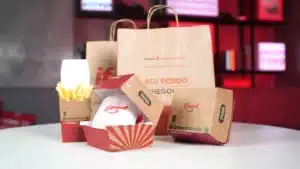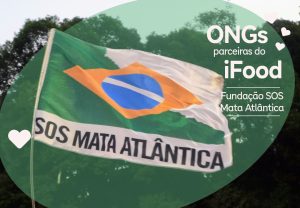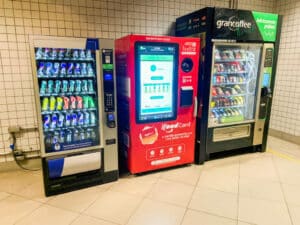What else can a garden provide besides food? For Wagner Ramalho, founder and CEO of NGO Prato Verde Sustentável, it is also possible to reap a lot of income and environmental and food education from it. He himself is proof that all this happens.
Prato Verde Sustentável came to fruition in 2013 as the practical part of the work to complete the Environmental Management Technology course in which Wagner addressed the relationship between food security and the environment. But the idea of doing something along these lines comes from his childhood.
“I was raised by an indigenous family in Presidente Prudente (SP). Even though I only lived with them for 4 years, that time was enough to understand this relationship between people and nature”, he recalls.
Wagner says that at the time, despite the family's low income, everything that was planted in the house's garden supplied the table. “There was no shortage of food,” he says. Thus, the environmental entrepreneur created, in his childhood, a bond of relationship with the garden, from which he never separated.
“I was 7 to 8 years old. The first thing they gave me was a small package of garlic and a little place on the ground for me to plant it. I didn't take my eyes off it until the first garlic sprouted. And then it was even more incredible because I saw all that abundance. I thought: 'Did all this come out of that little pot?'”, he says.
From this experience, Wagner learned that it was possible to have food on that little piece of land. And later he realized that an experience with nature, more or less along the lines of what he had, would be essential to generate in people the importance of sustainability.
“Sustainability is more than tying up your trash or turning off the tap at home. With the garden, I can teach someone how to recycle their trash, how to capture rainwater, how to recover a degraded area, how to create a community of cultivators. To respect the environment, you need to have this experience”, he says.
The garden becomes a business
It was from this experience that Prato Verde Sustentável emerged as a business.
The trigger for the idea came in 2008, during the economic crisis that gripped the world and one of the consequences here was food price inflation. Many people had to exchange what they ate for cheaper products with less nutritional value — and this raised an alarm in Wagner. “I was already writing a project, but I didn’t want it to be just a theory”, he recalls.
It was only in 2013 that he managed to attract more people to put into practice the idea of using vegetable gardens as a driver for promoting environmental and food education and generating income.
The first vegetable garden in this model appeared in the Jaçanã neighborhood, at Associação Mutirão, an entity that serves people in social vulnerability through socio-educational activities. But, Wagner says, it wasn't very easy to get there. It only worked when the entrepreneur convinced the community that he and his group were there to set up an educational garden for the children and young people served by the entity.
“Prato Verde Sustentável is a technology NGO with socio-environmental impact”, says Wagner. “That garden managed to recover a degraded area. And there was a social recovery too. Today it is an environmental educational center, even an ecotourism point.”
From this small piece of land, Prato Verde Sustentável grew, and today it has 5 vegetable gardens that produce 18 tons of agroecological food per year, including vegetables, roots and fruits. Most of these gardens have a total area of 3 thousand m² (almost half a football field). Part of what is produced in community gardens is sold, and the other part is donated to institutions. Both the assembly and maintenance of these plantations do not generate costs for those who receive the food.
The NGO's income comes from private gardens (of those with greater purchasing power) and from partnerships, such as the one carried out with iFood to help build and maintain three of the five school gardens that foodtech Brazilian company implemented in São Paulo and neighboring Osasco and Ferraz de Vasconcelos.
“iFood had the pain of not being able to include the community within the garden. And that’s what we work on”, explains Wagner. “It was necessary for the community to accept the garden, and not just get there, implement it and leave.”
In schools, the garden, in addition to providing food for lunch, helps throughout the learning process of children attending Elementary School 1 and 2.
“The garden is multidisciplinary”, explains Wagner. “For example: you can ask students to write a poem about the garden, learn about the history of agriculture, teach the process of photosynthesis, do mathematical calculations. There’s a lot you can learn there.”
Seed of solidarity
And it worked. Acceptance has been good in the community served by these schools. According to Flavia Rosso, environmental impact manager at iFood, fathers and mothers of students at these schools want the garden is maintained and indicated that children's nutrition improved after the implementation of the project.
“In addition to the amount of food already produced [17 tons], the improvement in nutrition, there is an environmental relationship and a relationship with food that remains for the rest of your life”, evaluates Flavia, corroborating what Wagner and Prato Verde Sustentável try to do .
The partnership with iFood gave, in Wagner's words, additional energy to invest in the NGO itself and thus expand its operations. Prato Verde Sustentável will soon gain an industrial kitchen to begin preparing food products from what is harvested and training the local population to learn how to make these products and thus increase their income.
And how does Wagner, this lover of vegetable gardens, feel? “Like a person who made dreams come true. Dreams that are not just mine, but of many other people, who can eat better, eat well and live in an environment that, although there is poverty, is not misery, they are not in need. I feel like I’ve already left my seed and that this will continue.”


